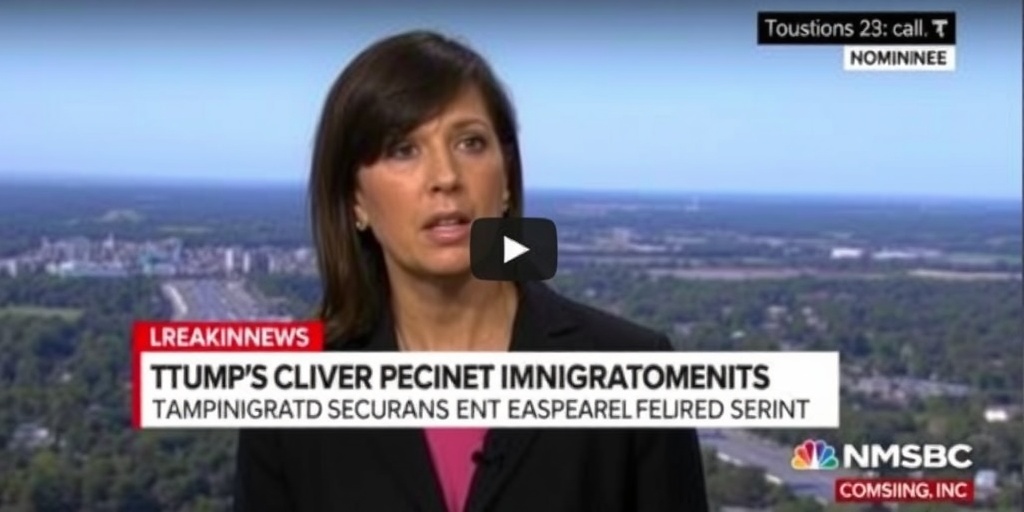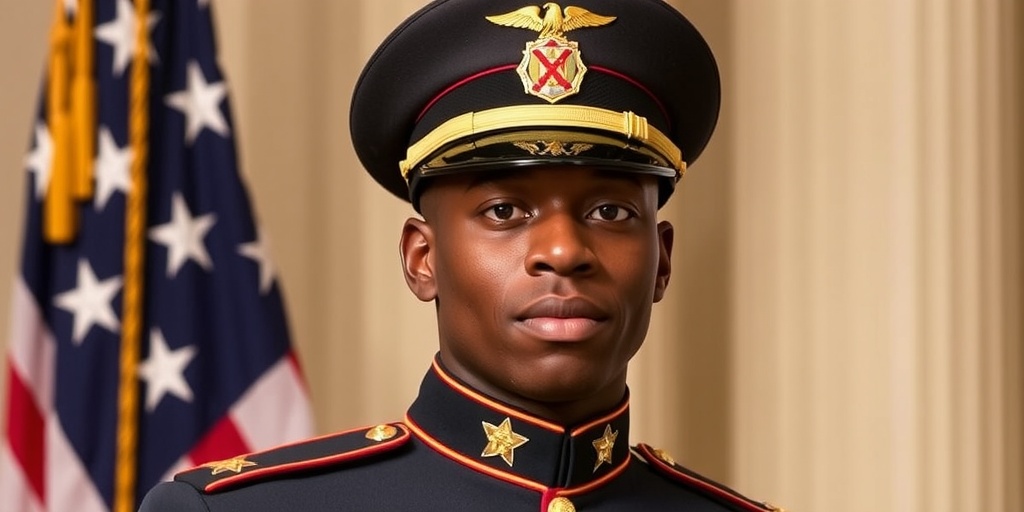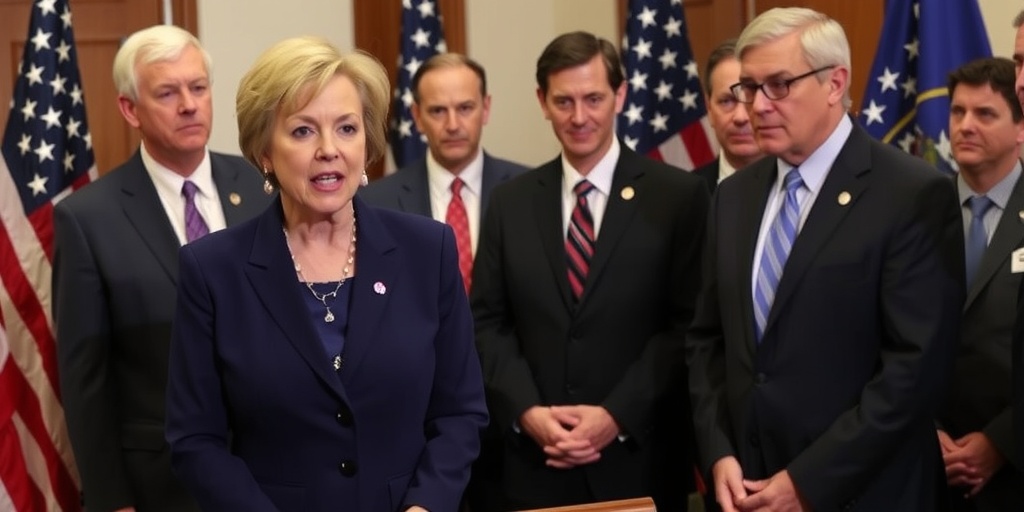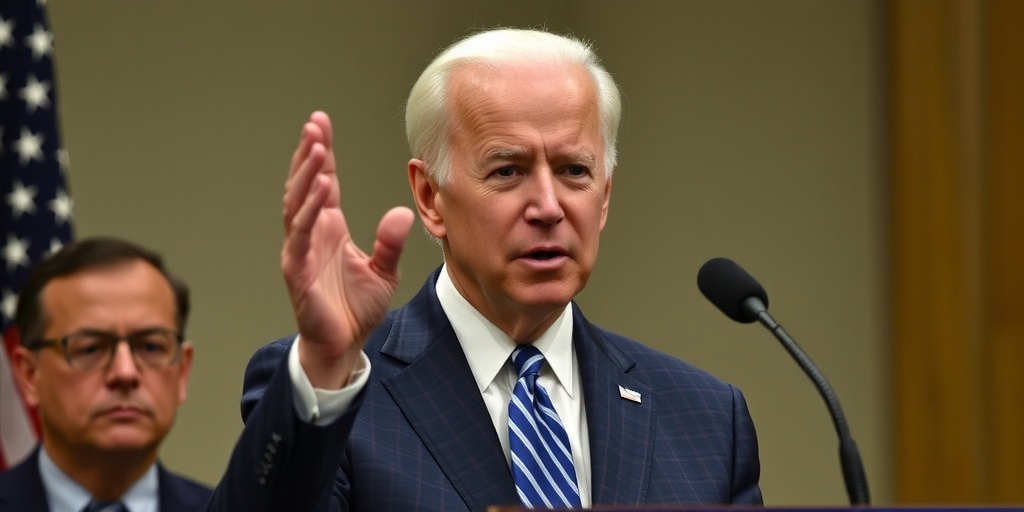Now Reading: Kristi Noem Faces Immigration Questions as Trump’s Homeland Security Nominee
-
01
Kristi Noem Faces Immigration Questions as Trump’s Homeland Security Nominee
Kristi Noem Faces Immigration Questions as Trump’s Homeland Security Nominee

Kristi Noem Faces Senate Confirmation Hearing for Homeland Security Secretary Role Amid Immigration Debate
Governor Kristi Noem of South Dakota, nominated by President-elect Donald J. Trump to head the Department of Homeland Security (DHS), is set to answer questions from the Senate Homeland Security Committee during her confirmation hearing. This pivotal agency oversees critical aspects of the U.S. immigration system, positioning Noem at the center of a heated national debate over immigration enforcement. The DHS is responsible not only for border security but also encompasses vital agencies including the Secret Service, the Coast Guard, and the Federal Emergency Management Agency (FEMA).
As South Dakota’s governor since 2019, Noem has managed to largely evade the intense scrutiny directed at some of Trump’s other cabinet nominees. However, the urgency of her position within the DHS cannot be overstated. The agency’s role is crucial to fulfilling the new administration’s proposed agenda to revamp immigration policies, a campaign promise that significantly contributed to Trump’s electoral success in November. The Senate’s examination of Noem is bound to focus on her stance regarding immigration policies as Democrats express varying degrees of support for enhanced enforcement measures.
Throughout her political career, Noem has been an advocate for the strict immigration policies championed by Trump. She has consistently criticized the Biden administration’s approach and has taken direct action as governor, such as deploying South Dakota’s National Guard to the southern border on multiple occasions. “As you know, I’ve taken a stand against this invasion,” she stated in a recent speech. “We’ve deployed our South Dakota National Guard to our southern border eight times. That includes five state deployments to support Texas’ work to stop the flow of illegal aliens.”
Trump has lauded Noem for her strong stance on border security, a critical area of concern for both his administration and a significant portion of the American electorate. However, historical precedent suggests that meeting Trump’s expectations could be difficult; during his first term, the DHS experienced frequent leadership changes, with six different individuals appointed to lead the agency.
Looking ahead, Noem is expected to collaborate closely with Tom Homan, whom Trump has named as the White House’s "border czar." Homan is tasked with overseeing a broad portfolio concerning immigration enforcement and border control, with an emphasis on fulfilling the administration’s promises regarding aggressive policing of the U.S.-Mexico border. The National Border Patrol Council, representing Border Patrol agents, has expressed support for Noem’s nomination. They believe that her leadership will equip agents with the necessary resources and manpower to effectively secure the nation’s borders. In a letter to Senate members, the union voiced their confidence in Noem, urging prompt consideration of her nomination as vital to border security.
However, the American Civil Liberties Union (ACLU) has called for thorough scrutiny during Noem’s confirmation process, emphasizing the implications of her potential leadership in light of Trump’s pledges. Sarah Mehta, a senior policy counsel at ACLU, remarked, “Given President-elect Trump’s promises, the stakes are even higher. The Senate must take seriously its ‘advice and consent’ role and get Kristi Noem on the record on important issues that impact all our communities, including surveillance, religious and racial profiling, and use of force against protesters.”
In order to successfully execute Trump’s ambitious plans for mass deportation, the DHS under Noem would require an array of resources, including enhanced collaboration with local jails to facilitate the transfer of detainees and increased negotiations with foreign governments that typically resist accepting their nationals back.
Before stepping into her role as governor, Noem served as a congresswoman from 2011 to 2019, where she gained valuable experience in national issues and policies. Her nomination has elicited mixed reactions, highlighting the contentious nature of immigration reform in the United States. As she prepares for her confirmation hearing, the spotlight will be on how Noem articulates her vision for the DHS and addresses the essential questions regarding immigration enforcement that are at the forefront of national discourse. The outcomes of this hearing will not only shape her confirmation as secretary but also serve as an indicator of the direction the Trump administration intends to take on immigration and border security matters in the coming years.
Stay Informed With the Latest & Most Important News
Previous Post
Next Post
Previous Post
Next Post
-
 01New technology breakthrough has everyone talking right now
01New technology breakthrough has everyone talking right now -
 02Unbelievable life hack everyone needs to try today
02Unbelievable life hack everyone needs to try today -
 03Fascinating discovery found buried deep beneath the ocean
03Fascinating discovery found buried deep beneath the ocean -
 04Man invents genius device that solves everyday problems
04Man invents genius device that solves everyday problems -
 05Shocking discovery that changes what we know forever
05Shocking discovery that changes what we know forever -
 06Internet goes wild over celebrity’s unexpected fashion choice
06Internet goes wild over celebrity’s unexpected fashion choice -
 07Rare animal sighting stuns scientists and wildlife lovers
07Rare animal sighting stuns scientists and wildlife lovers





















